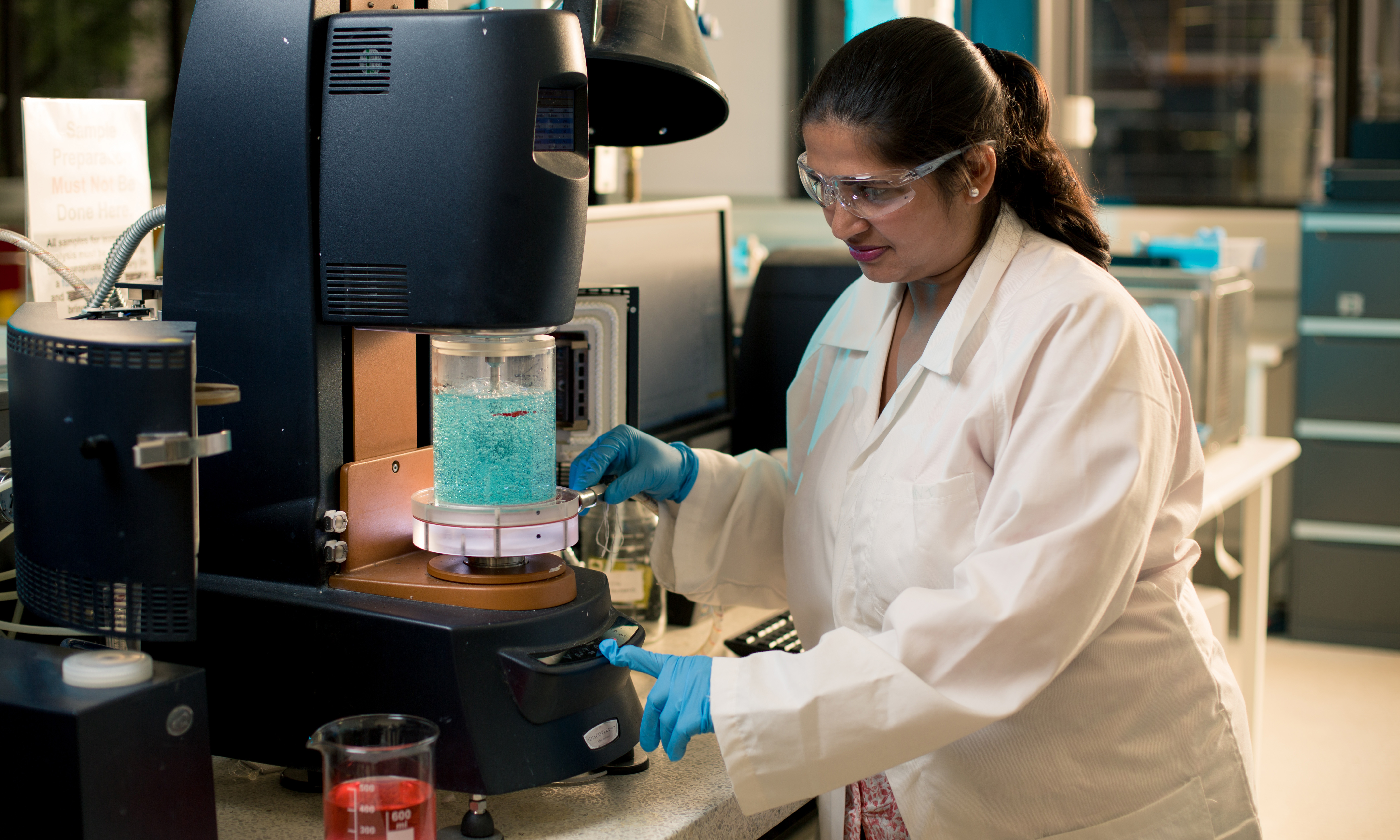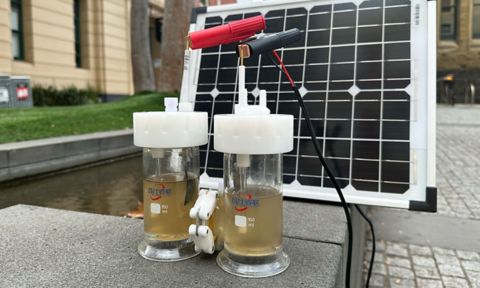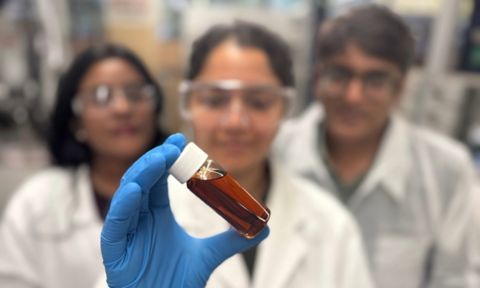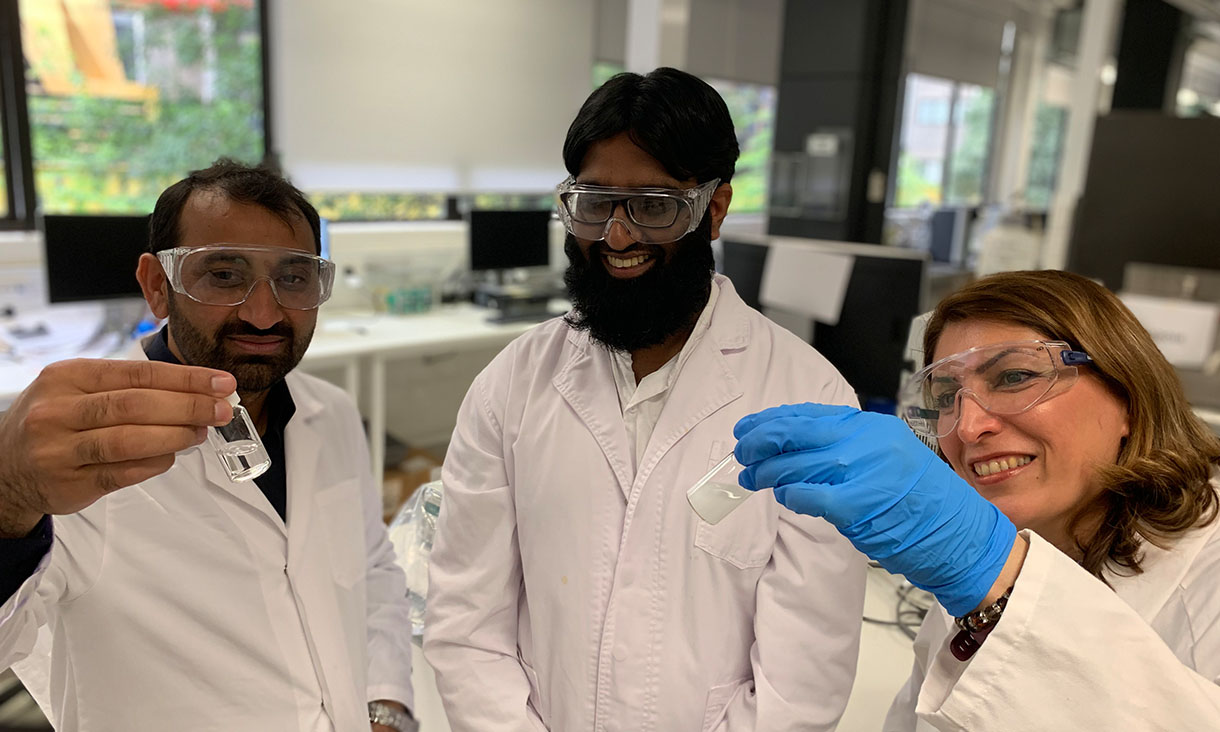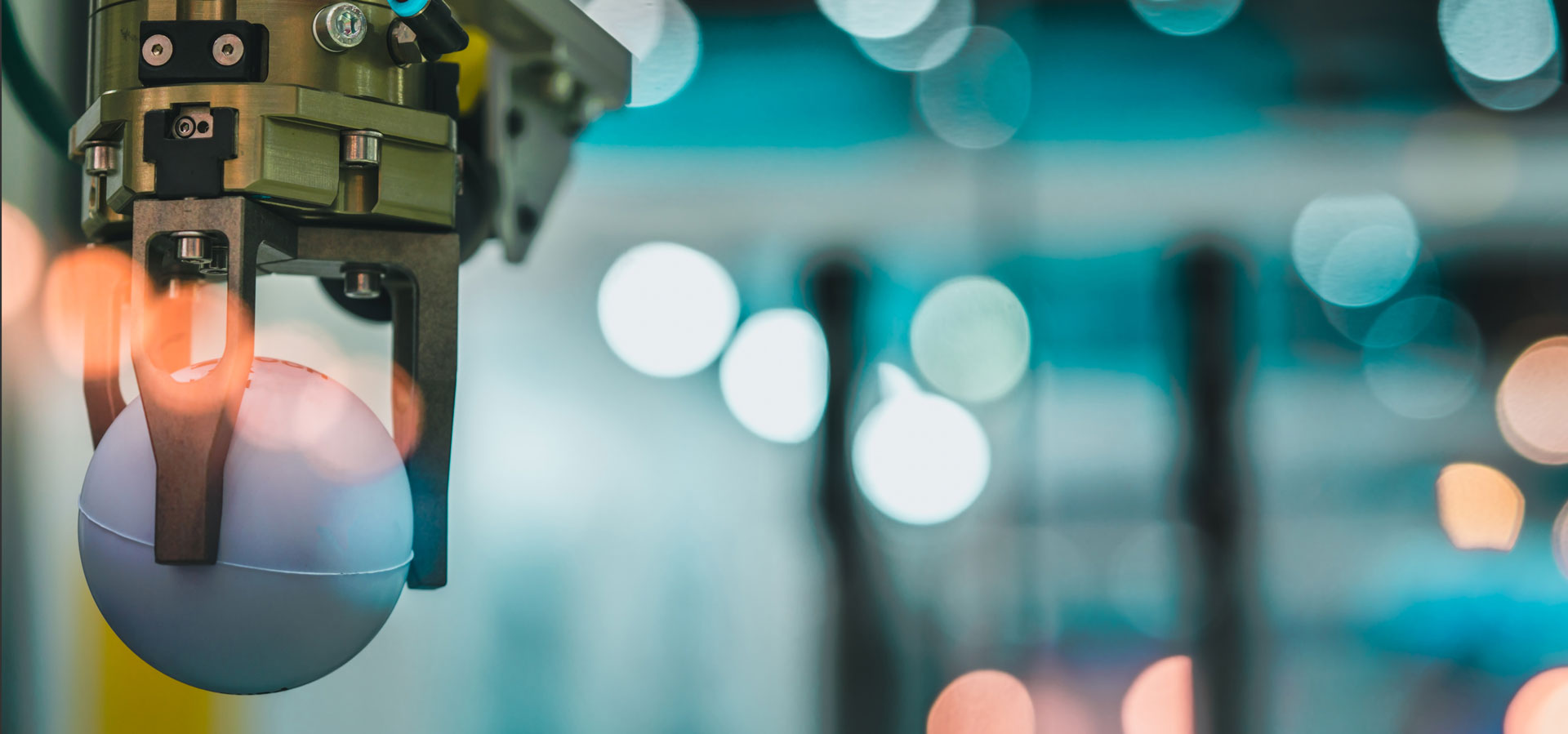Wastewater contaminants boost green hydrogen production
Research led by RMIT University has developed an experimental invention to turn wastewater’s high contaminant load into an advantage for making green hydrogen that could reduce reliance on fresh water – a scarce resource in many parts of the world.
Aussie tech helps make bio-oils for greener industrial applications
Australian technology developed at RMIT University could enable more sustainable and cheaper production of bio-oils to replace petroleum-based products in electronic, construction and automotive applications.
Magnetic material mops up microplastics in water
Researchers at RMIT University have found an innovative way to rapidly remove hazardous microplastics from water using magnets.
Sound waves power new advances in drug delivery and smart materials
Researchers have revealed how high-frequency sound waves can be used to build new materials, make smart nanoparticles and even deliver drugs to the lungs for painless, needle-free vaccinations.
